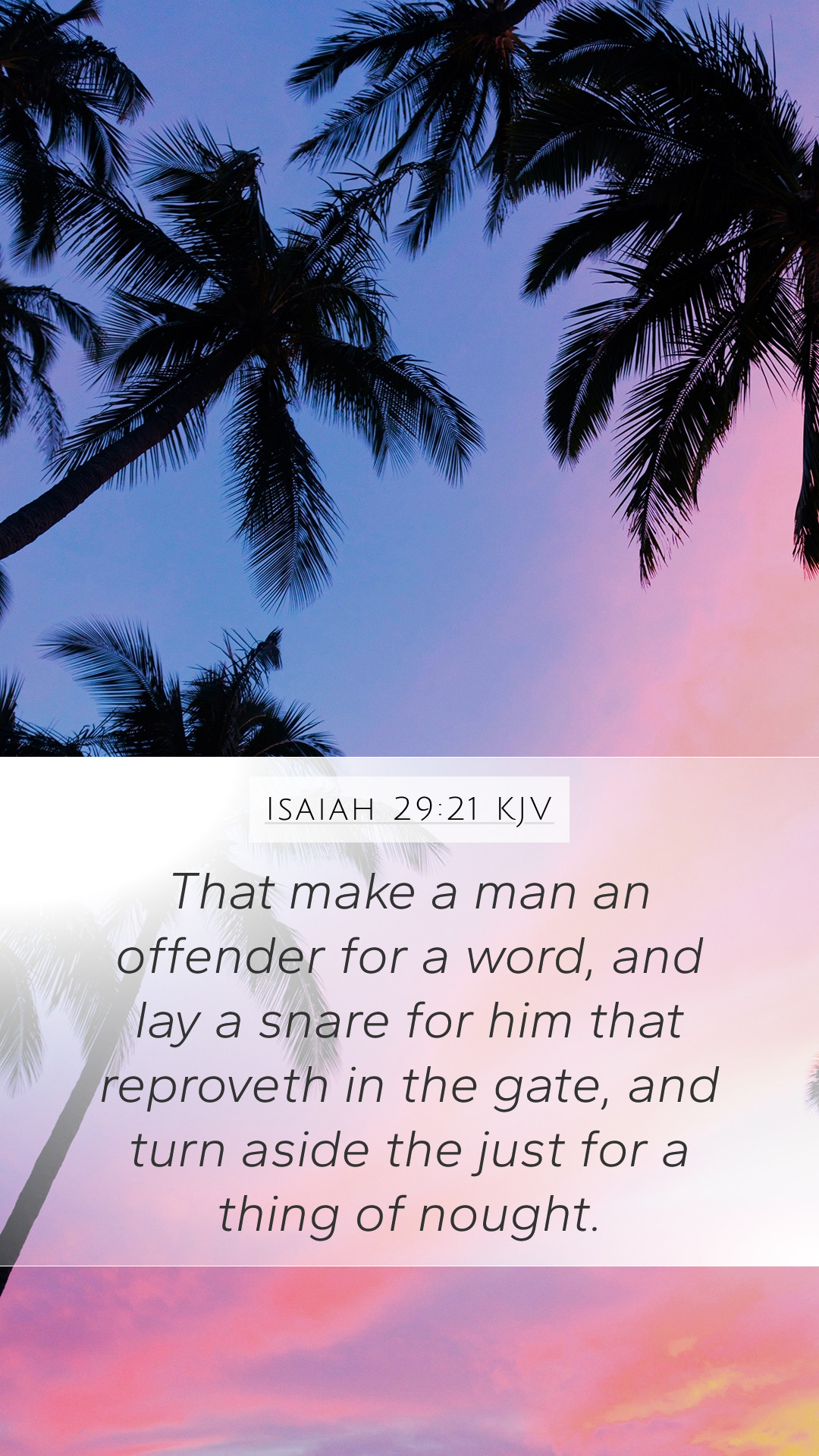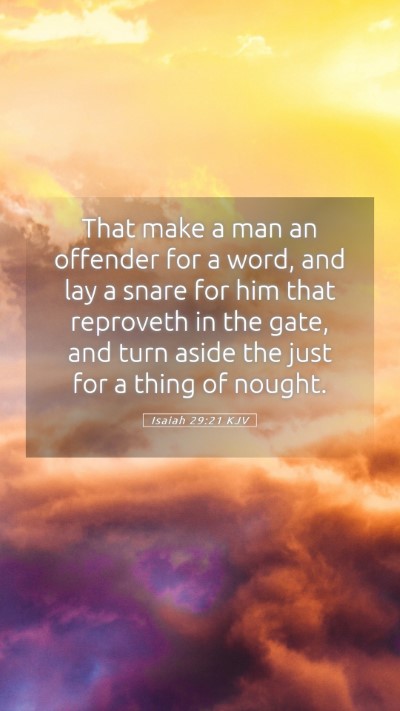Understanding Isaiah 29:21
Isaiah 29:21 states: "To turn aside the needy from judgment, and to take away the right from the poor of my people, that widows may be their prey, and that they may rob the fatherless." This verse critiques the injustices through which the powerless, particularly the poor and widows, are oppressed by the corrupt leaders of society. Below is an exploration of this verse through the insights of respected public domain commentators.
Bible Verse Meanings
The meaning behind Isaiah 29:21 involves the rulers of Israel who were manipulating justice for their gain. The manipulation of social justice shows how those in power often neglect the rights and welfare of the needy.
Bible Verse Interpretations
Various interpretations of this text can illuminate its relevance in today's context:
- Matthew Henry: Henry emphasizes how the leaders of Judah had turned away from their responsibilities, prioritizing personal gain over their duties to protect the vulnerable. He highlights the severity of neglecting justice, especially for the fatherless and widows.
- Albert Barnes: Barnes highlights that the verse describes a critical function of government and societal rulers: justice. When leaders prioritize their interests, the fabric of society deteriorates, emphasizing the importance of integrity in leadership.
- Adam Clarke: Clarke discusses the sociopolitical ramifications of injustice, asserting that neglecting the rights of the needy leads to broader societal issues. He notes this as a warning against letting corruption take root in society.
Bible Verse Commentary
Commentaries on Isaiah 29:21 provide deeper insights into the implications of the verse. These commentaries can be particularly useful for Bible study groups and online Bible study discussions.
Matthew Henry's Perspective
According to Matthew Henry, the verse serves as a dire warning to the leaders who failed to uphold justice. He presents a thorough examination of the consequences unjust leadership has not only on the poor but also on the stability of the nation.
Albert Barnes' Analysis
Albert Barnes offers a broader perspective by placing this verse within the historical context of Israel's judgment, asserting that societal neglect for the vulnerable leads to divine retribution. His analysis is a vital part of Bible study tools and provides valuable insights for Bible study lessons.
Adam Clarke's Insights
Adam Clarke provides an application-focused analysis, urging readers to reflect upon their roles within society concerning justice for the needy. His interpretation highlights the ongoing relevance of this verse in confronting modern-day issues of poverty and injustice.
Scripture Analysis
In conducting a more exhaustive scriptural investigation, one can create a thorough biblical exegesis of this verse. Studying the historical context of this verse enhances our Bible study insights. Key themes include:
- The importance of justice and mercy in leadership
- The consequences of societal neglect
- God's concern for the marginalized
Related Scripture Cross References
This verse can be cross-referenced with:
- Exodus 22:22-24: A strong admonition against oppressing the widow and the fatherless.
- Psalm 82:3-4: Calls for justice for the lowly and afflicted.
- Proverbs 31:8-9: Encouragement to speak up for those who cannot speak for themselves.
In Conclusion
Understanding Isaiah 29:21—and indeed many Bible verses—requires careful study and consideration of context, history, and application. The verse serves not only as a warning but also as a reminder of God’s expectation for justice and care for the needy. As we seek the meaning of Bible verses like this one, we can transform our understanding and apply the teachings to our daily lives.
Applying Isaiah 29:21 to Daily Life
As we reflect on the implications of this verse, consider how we can advocate for justice and support those in need in our communities. Engaging in Bible study topics focused on justice can help incite awareness and inspire action.
These interpretations and insights can enliven Bible study groups and guide us to deeper understandings of Scripture, enriching both personal and communal growth in faith.


